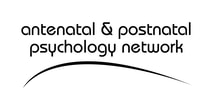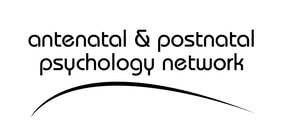|
"I never expected to be flooded with so many emotions". "I feel intensely protective and utterly fearful". "I feel helpless and sometimes, useless". "I have this constant worry that something bad is going to happen". "I was traumatised from seeing my partner in labour, but I knew I had to be strong for her". "Work seems irrelevant but I feel a pressure to perform because my family is depending on me". "I don't know who I am anymore". "What's happened to my wife?" "I feel exhausted all the time". These are just some of the thoughts and feelings men have shared in the therapy rooms of the Antenatal & Postnatal Psychology Network. Depression, anxiety and stress is common in new dads, but the focus is often on new mums. This can mean that dads feel unjustified in seeking help, and worse still, they feel like seeking help in some way implies weakness. New parenthood is a developmental stage (just like toddlerhood, adolescence, adulthood). With it comes change, uncertainty, new learning, and a need for re-definition (both for the self, and for the couple relationship). Struggling is par for the course. New parenthood forces people to acknowledge the ways in which they were parented. This can be confronting, and can present challenges for new parents, especially when their parenting backgrounds were difficult, traumatic, or significantly different from that of their partners'. Some men feel paralysed with fear about parenting like their own parents, but don't know how to do things differently, especially in the toddler years. Parenting support and guidance can make an enormous difference. Some men struggle because their partners become unwell in pregnancy or the postnatal period (with depression, anxiety, stress or in rare cases, psychosis). We often see men who have 'held the fort' while their partners were being treated, who then 'hit the wall' themselves - buckling under the unexpected pressure of taking care of their partners and babies, while trying to function at work. Speaking to a mental health professional is about resourcing yourself to better manage in this new life role. Arguably, the most important role of your life. As the Royals William, Harry and Kate discuss in this youtube video, "talking is medicine". www.youtube.com/watch?v=45RqUmxDXiY If you are struggling as a new dad, you can contact the phone counsellors at PANDA on 1300 726 306, see your GP, or seek the help of a psychologist. You may have a work Employee Assistance Program (EAP) that you could access. Centre of Perinatal Excellence (COPE) offers free emails to new dads (synced with the stage of fatherhood they are at), with trustworthy and supportive insights, strategies and advice. Dads can sign up for their emails here: www.cope.org.au/readytocope/ If you're interested in reading quality parenting articles (curated by a Clinical Psychologist), you can follow the Facebook Page of the Antenatal & Postnatal Psychology Network. Stay informed about evidence-based parenting approaches that support you through the challenges of parenthood (especially through the toddler years). You could also follow Dr Matthew Roberts's Town Hall Dads Facebook page - dedicated to fathers. Written by Dr Renée Miller Principal Clinical Psychologist Antenatal & Postnatal Psychology Network If you've become a parent, you're likely to have been catapulted into a vastly different life to the one you had before. A new identity, new roles responsibilities and routines, and lots of questions about how you're going and how you're feeling as a parent. Parents often look to other parents or professionals for good quality information to help guide them in both their parenting and in their life adjustments.
The psychologists from the Antenatal & Postnatal Psychology Network have compiled a list of resources that we recommend to our clients, that you might find helpful. The Ted Talks We Love is an ever evolving page on our website that lists Ted Talks on topics such as building emotional security and resilience in children; self-compassion and self-esteem; managing anger; the strength in vulnerability; the pressures of modern day life and the importance of slowing down; and understanding introversion. These Ted Talks can be found here. We also have a selection of videos that cover topics of mental health in new parents, and parenting. These videos can be found here. Hope you find these resources helpful. Dr Renée Miller |
AuthorPosted by Dr Renée Miller Topics
All
|
|
We acknowledge and pay respects to the Elders and Traditional Owners of the land on which our psychologists practise.




 RSS Feed
RSS Feed

